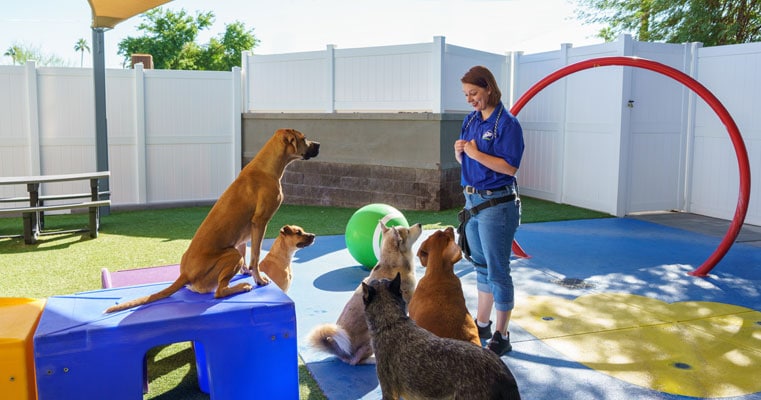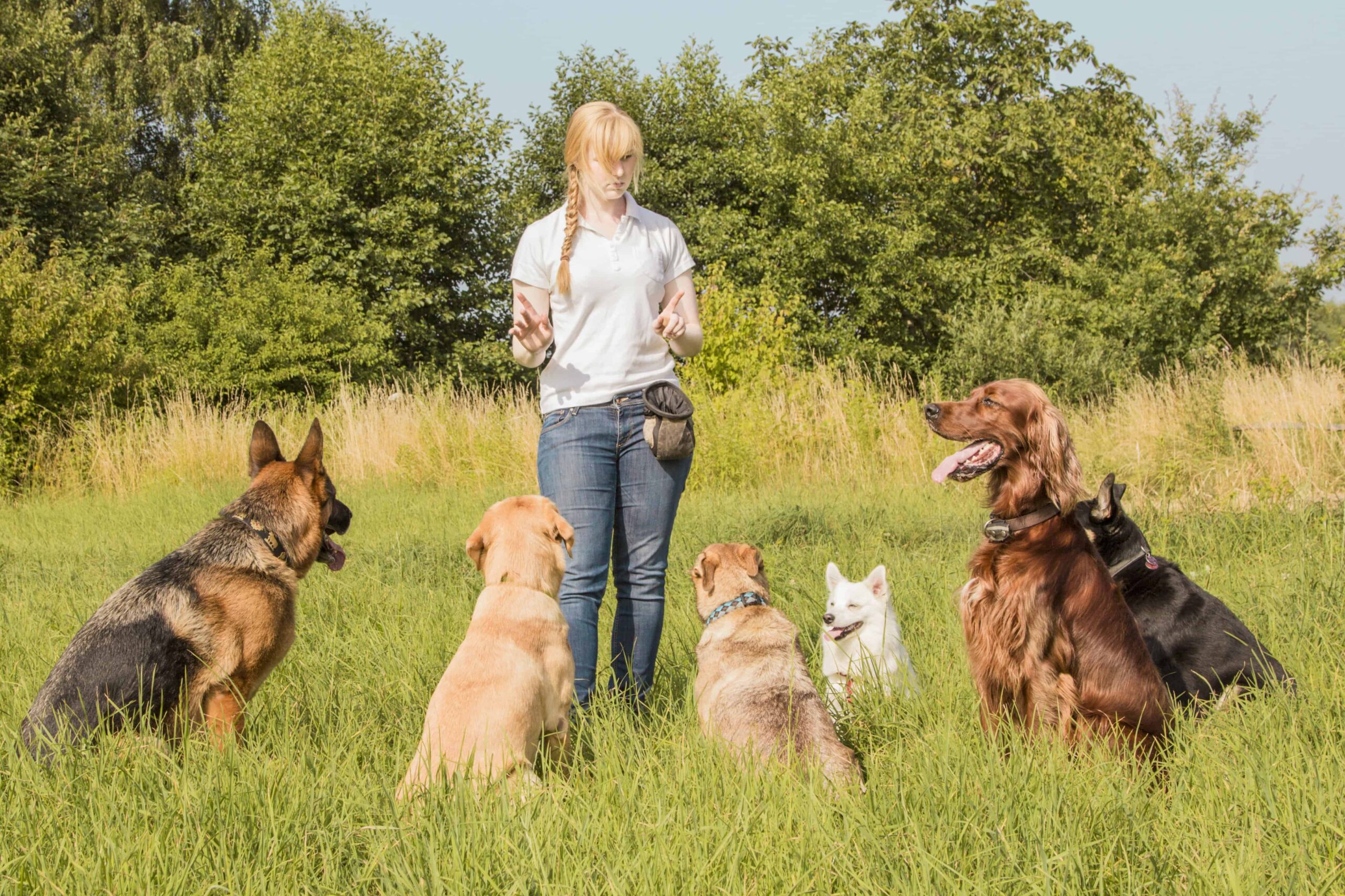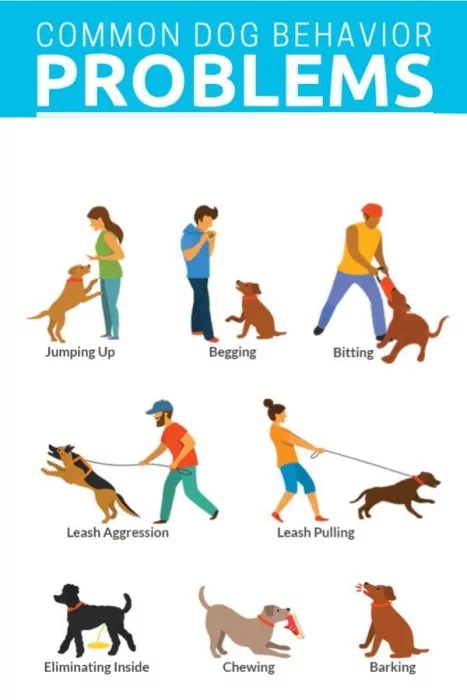The Ultimate Guide to Dog Training Charlotte: Methods for Success
The Ultimate Guide to Dog Training Charlotte: Methods for Success
Blog Article
Unlock Your Canine's Prospective: Proven Dog Training Techniques for Success
Effective pet training is a nuanced process that pivots on comprehending canine behavior and using scientifically backed approaches. By integrating favorable reinforcement, developing clear commands, and prioritizing socializing, canine proprietors can cultivate an effective connection with their animals.
Recognizing Dog Actions
Understanding pet dog habits is important for efficient training and fostering a positive partnership between pet dogs and their proprietors. A thorough grasp of canine body movement, articulations, and social communications is critical for recognizing their emotions and needs. Pet dogs connect largely through non-verbal cues; as an example, a wagging tail may show excitement, while pinned ears can signal concern or entry.

Moreover, ecological variables play a substantial function in forming a pet dog's habits. Changes in routine, brand-new environments, or the existence of unknown individuals can bring about stress and anxiety or stress and anxiety in canines. Recognizing these triggers makes it possible for proprietors to reduce unfavorable responses and create proper training techniques.
Ultimately, a deep understanding of pet habits lays the foundation for effective training techniques, improving both actions and the overall bond in between the pet dog and its owner. Dog training. This expertise is crucial for promoting a well-adjusted, satisfied canine buddy
Positive Support Techniques
Reliable training depends greatly on positive reinforcement methods, which have actually been shown to yield substantial cause shaping preferred behaviors in canines. This strategy entails compensating a dog for exhibiting particular behaviors, thereby enhancing the possibility that these actions will be duplicated. Incentives can take different types, including treats, appreciation, toys, or playtime, relying on what motivates the private pet.

It is important to gradually terminate incentives as the pet dog discovers the actions, transitioning to recurring support. This strategy keeps the habits over time while avoiding dependency on constant benefits. By concentrating on favorable reinforcement, instructors can cultivate a relying on connection with their dogs, promoting a healthy and cooperative training atmosphere that enhances general obedience and efficiency.
Establishing Regular Commands
A fundamental facet of successful canine training is the establishment of constant commands. Uniformity in commands is vital for effective interaction between the instructor and the canine. When commands are consistent, canines find out to associate details words with preferred behaviors, which speeds up the training procedure and boosts understanding.
To establish consistent commands, it is important that all relative use the same terms and gestures. If one individual uses "rest" while an additional says "sit down," it can produce complication for the pet. Select clear, distinct words for commands and guarantee everybody involved in the pet dog's training complies with these options.
Additionally, repetition is essential. Strengthen commands with regular service dog training near me prices technique, making certain that the dog receives adequate possibilities to react correctly. When a dog successfully adheres to a command, instant favorable support must adhere to. This can be in the kind of deals with, praise, or playtime, solidifying the connection between the activity and the command.
Last but not least, be patient. Developing regular commands takes time and effort. With dedication and clarity, you will help your dog develop a solid understanding of assumptions, eventually causing a well-behaved friend.
Socializing and Exposure
Socializing a canine is vital for promoting a confident and well-adjusted buddy. This process entails subjecting your dog to a selection of environments, individuals, and other pets to establish their social abilities and versatility. Early socialization, preferably between the ages of 3 to fourteen weeks, is essential, as it lays the foundation for a pet dog's future behavior.
Throughout socialization, goal to provide favorable experiences in different setups, such as parks, busy roads, and homes with various other family pets. Present your canine to numerous stimuli, consisting of sounds, views, and scents, making sure that each experience is gratifying. This direct exposure helps alleviate fear and stress and anxiety, leading the way for a more durable pet.
Engaging in regulated team play sessions with other pet dogs can also improve social abilities, teaching your family pet appropriate communications and boundaries. Constantly check your dog's comfort degree throughout these experiences, gradually enhancing direct exposure as their self-confidence expands. Keep in mind, the objective is to develop a well-shaped pet dog that flourishes in diverse scenarios, advertising a harmonious relationship with both people and other pets. Prioritizing socialization will significantly add to your dog's total joy and actions throughout their life.
Conquering Common Educating Difficulties

Canines might battle to focus in hectic or unknown settings. Gradually desensitize your canine to disturbances by beginning training in a quiet environment and slowly presenting even more stimulations as they come to be efficient.
In addition, behavior issues like leaping or too much barking can become discouraging. Address these by instructing different actions, such as resting steadly when greeting visitors. Uniformity and perseverance are essential; reinforce desired actions continually and stay clear of abuse, which can bring about complication.
Last but not least, identify that each pet is distinct, and training timelines might differ. Tailor your method to your pet dog's specific needs, and look for professional guidance if required. With perseverance and the appropriate methods, conquering these obstacles can lead to a well-trained, happy canine companion.
Conclusion
In conclusion, opening a pet's prospective necessitates read review an extensive approach that includes an understanding of canine habits, the application of positive support methods, and the establishment of regular commands. Early socializing and direct exposure to varied environments even more enhance a dog's flexibility and self-confidence. By dealing with usual training difficulties with tailored approaches and persistence, a unified and cooperative partnership between dog and trainer can be fostered, inevitably resulting in a mannerly companion with the ability of flourishing in numerous circumstances.
Effective canine training is a nuanced procedure that hinges on recognizing canine official site habits and using scientifically backed approaches.Understanding pet behavior is crucial for effective training and cultivating a positive connection in between canines and their proprietors.Effective training depends greatly on positive support methods, which have been revealed to produce significant outcomes in forming desired actions in canines. When commands are consistent, pets discover to link specific words with wanted habits, which accelerates the training process and improves understanding.
In conclusion, unlocking a dog's potential demands a comprehensive approach that integrates an understanding of canine actions, the application of favorable reinforcement strategies, and the facility of consistent commands.
Report this page